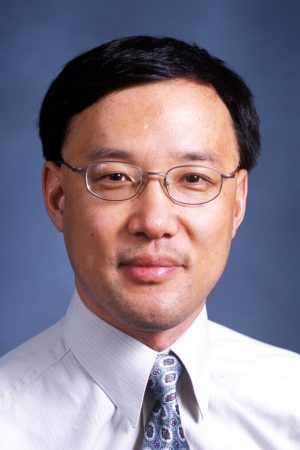Yongge Wang

Yongge Wang
Biography
Dr. Yongge Wang is a professor at UNC Charlotte. Dr. Wang has published extensively on research topics including algorithmic information theory, cryptography, and post-quantum security. Dr. Wang has proved several classical results in modern effective randomness research which are included as the fundamental theorems in most Algorithmic Information Theory graduate textbooks. Dr. Wang is the holder of three patents and the inventor of two IEEE 1363 standardized techniques. Dr. Wang is one of the designers for fundamental W3C and IETF XML security techniques such as XMLENC and XMLDSig syntax. These standards are the starting point for all XML related security techniques. Dr. Wang played important roles in developing research and education programs at UNC Charlotte. Recently, Dr. Wang has been working on fully homomorphic encryption, garbled computation techniques, and apply these techniques to achieve privacy preserving computation in cloud. Dr. Wang has designed quantum resistant public key encryption techniques RLCE (http://quantumca.org) and developed the software package readily to be integrated into current Internet infrastructure. Dr. Wang’s RLCE technique has been submitted to NIST and is currently under consideration as a candidate for post-quantum cryptographic standards to defend national infrastructure in the quantum era.
Presentation Overview
Every now and then we see news about quantum computing. Quantum computing is no long a scientific fiction. Quantum computers have already been deployed in Google, NASA, Lockheed Martin and others to achieve important tasks that traditional computers cannot. For example, D-Wave’s quantum computer has helped Lockheed Martin to identify some errors in a 30-year-old chunk of code from an F-16 aircraft. These errors took Lockheed Martin’s best engineers several months to find though it only took six weeks for a quantum computer to identify. Currently, three kinds of quantum computers are being researched and built. Universal quantum computer (in the same model as Von Neuman’s universal computer for our current computers), adiabatic quantum computer (like D-wave’s quantum computer), and Boson sampling based quantum computers (which is known to collapse the NP hierarchy). Some of these quantum computers have already been deployed (e.g., D-Wave’s adiabatic quantum computer), others are expected to be deployed within 5 to 10 years. When these quantum computers are available, current Internet infrastructure will be completed broken. Current SSL, VPN, “secure online banking”, online commerce will no long be secure. In this talk, we will review various quantum computer techniques, and their impact on Internet security. We will also review government efforts to design a next generation security protocol for Internet in the quantum era.